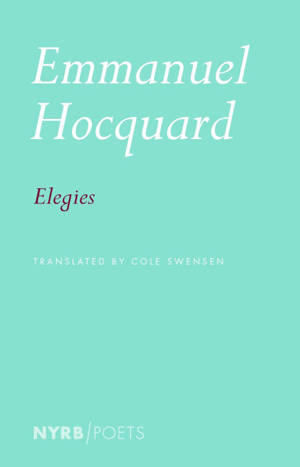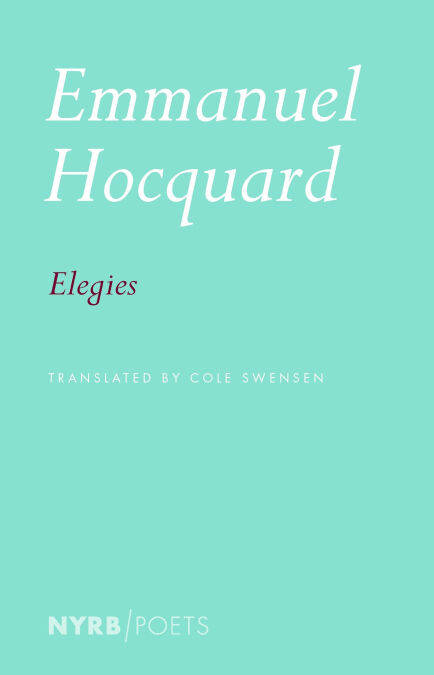
- Afhalen na 1 uur in een winkel met voorraad
- Gratis thuislevering in België vanaf € 30
- Ruim aanbod met 7 miljoen producten
- Afhalen na 1 uur in een winkel met voorraad
- Gratis thuislevering in België vanaf € 30
- Ruim aanbod met 7 miljoen producten
Zoeken
Omschrijving
The central works of one of France's most renowned poets, now translated into English for the first time.
Emmanuel Hocquard’s Elegies lie at the core of his œuvre, one of the most admired in contemporary French poetry. Written over some twenty-five years, the elegies trace an expressive thread throughout the whole of his work as they wander through a capacious past, and, like rolling thunder, make that past larger and larger. Whose past is it? And to whom does the past, in general, belong? Hocquard seems to suggest that, like air and water, the past is a commons shared by all, for while these works are studded with vivid autobiographical glimpses, they also sweep through wide swaths of the ancient world as well as contemporary markets, streets, and other public places, overhearing conversations and capturing quotidian details.
Elsewhere, Hocquard has distinguished between two types of elegiac poet—the classic and the inverse. He goes on to say that the classic ruminates on the past while the inverse remakes it. They both love anecdote, he says, but for the classic, anecdote saves a memory from oblivion, while for the inverse, it is a tiny clue that opens up a new path, a path toward the present. Hocquard is clearly an inverse elegiac poet; his Elegies are full of rich anecdotes, and they all lead us to an ever-expanding present.
Emmanuel Hocquard’s Elegies lie at the core of his œuvre, one of the most admired in contemporary French poetry. Written over some twenty-five years, the elegies trace an expressive thread throughout the whole of his work as they wander through a capacious past, and, like rolling thunder, make that past larger and larger. Whose past is it? And to whom does the past, in general, belong? Hocquard seems to suggest that, like air and water, the past is a commons shared by all, for while these works are studded with vivid autobiographical glimpses, they also sweep through wide swaths of the ancient world as well as contemporary markets, streets, and other public places, overhearing conversations and capturing quotidian details.
Elsewhere, Hocquard has distinguished between two types of elegiac poet—the classic and the inverse. He goes on to say that the classic ruminates on the past while the inverse remakes it. They both love anecdote, he says, but for the classic, anecdote saves a memory from oblivion, while for the inverse, it is a tiny clue that opens up a new path, a path toward the present. Hocquard is clearly an inverse elegiac poet; his Elegies are full of rich anecdotes, and they all lead us to an ever-expanding present.
Specificaties
Betrokkenen
- Auteur(s):
- Vertaler(s):
- Uitgeverij:
Inhoud
- Aantal bladzijden:
- 160
- Taal:
- Engels
Eigenschappen
- Productcode (EAN):
- 9781681379937
- Verschijningsdatum:
- 8/12/2025
- Uitvoering:
- E-book
- Beveiligd met:
- Adobe DRM
- Formaat:
- ePub

Alleen bij Standaard Boekhandel
+ 17 punten op je klantenkaart van Standaard Boekhandel
Beoordelingen
We publiceren alleen reviews die voldoen aan de voorwaarden voor reviews. Bekijk onze voorwaarden voor reviews.











